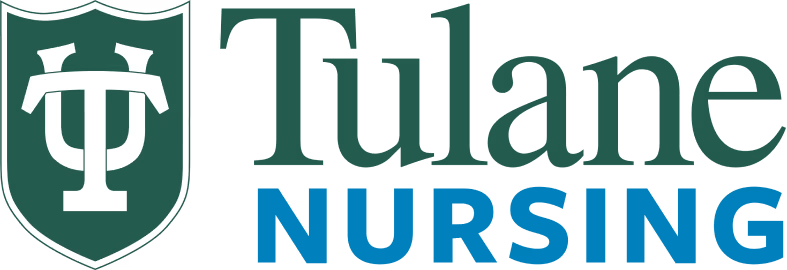Telehealth Nursing: Exploring a Career in Remote Patient Care
Telehealth nursing helps make healthcare convenient for patients, especially those in underserved communities. Nurses can assess and monitor patients remotely through telecommunication and digital health technology. To become a telehealth nurse, you must first gain a nursing degree, registered nurse license and clinical experience.

Over the past few years, telehealth nursing has changed the landscape of patient care. Patients now have greater access to healthcare and can assume a more proactive role in their health. Telehealth also opens new career opportunities for nurses, allowing them to work from home and combine their passion for nursing with the convenience of remote work.
If you are interested in telehealth nursing, Tulane University’s accelerated Bachelor of Science in Nursing (aBSN) program in New Orleans will help you take the first step by earning a nursing degree. Through the program, students can earn their Bachelor of Science in Nursing (BSN) in as few as 16 months, while studying in a diverse city rich with culture and healthcare opportunities. Upon completion, students are prepared to pursue a wide range of nursing specialties, including telehealth.
Below, we will explore telehealth nursing and provide details on how to become a telehealth nurse.
What is Telehealth Nursing?
Telehealth nursing allows nurses to provide healthcare services to patients without access to local care providers or who cannot travel. The need is met by various telecommunication and digital health technologies that enable remote monitoring and assessing of patients.
Telemedicine has emerged in recent years as technological advancements have enabled nurses to provide a higher quality of care. Telemedicine nurses can connect with patients by computer, smartphone, or tablet and provide virtual assessments. Additionally, wearable medical devices like heart rate monitors can instantly share data with healthcare providers so nurses can make real-time assessments.
Telehealth nurses undergo the same education and licensing as registered nurses and can work in various environments, including primary, acute, and end-of-life care. They are equally qualified to provide patient care, but because they perform their work remotely, telehealth nurses are limited in the type of care they can provide. They will recommend patients see an in-person provider if they cannot adequately address the condition virtually.

What Does a Telehealth Nurse Do?
A telehealth nurse’s day-to-day responsibilities vary depending on their patients’ needs. Despite this variability, telehealth nurse responsibilities generally fall under two categories: direct patient/family contact and professional collaboration.
Telehealth nurse responsibilities include:
- Telecommunication: Nurses coordinate and prepare patients for telehealth services, such as detailing communication methods (e.g., videoconferencing) and enrolling patients.
- Patient Education: Nurses educate patients and caregivers on medication management, test result information provided by physicians, medical data uploaded by the patient, and behavioral changes.
- Triage: Nurses virtually assess patients to determine whether they need to seek in-person care at an emergency department and coordinate with providers to transfer them between facilities when required.
- Remote Monitoring: Nurses assess patients’ biometric data acquired through wearable medical devices, such as heart rate and glucose monitoring.
- Healthcare Professional Collaboration: Nurses coordinate with patients’ care providers to develop a care plan and communicate the information to patients during a telehealth visit.
Benefits of Remote Nursing
Telemedicine offers many benefits for both patients and nurses. First and foremost, remote nursing provides patients who live in medical deserts with easy access to certain healthcare services. Medical deserts refer to regions lacking health resources and facilities or experiencing long wait times and economic and other socio-cultural barriers.
Patients who are immunocompromised, experience limited mobility, or lack transportation can also use telemedicine, making follow-up visits and routine monitoring more accessible. Telemedicine can also empower patients to become more engaged and assume a more proactive and preventive role in their health. It allows them to seek care for symptoms or conditions they otherwise would have postponed due to the inaccessibility of healthcare services.
Telehealth services also save costs for patients and organizations. Patients are not required to travel, and organizations can lower service costs by reducing the need for office space and staff.
Additionally, telehealth nurses can work from home and enjoy the convenience and flexibility of remote work. Importantly, since in-person appointments with patients are avoided, telehealth services can also reduce the spread of infectious diseases among healthcare providers.

Telehealth Nurse Salary and Career Outlook
The prevalence of telehealth services increased as a result of the COVID-19 pandemic. According to a 2022 study on telehealth before and after the pandemic, data compiled by FAIRHealth showed telehealth claims increased from 0.1% in 2019 to nearly 5% by the end of 2021, indicating telehealth’s growth and staying power.
Now, more people are aware of these services, and more companies offer telemedicine to their patients. With recent technological advancements and changes in healthcare systems, telehealth services are expected to grow alongside nursing employment.
While the U.S. Bureau of Labor Statistics does not differentiate between telehealth and registered nurses, registered nurse employment is expected to grow by 6% from 2022 to 2032, significantly faster than the national average for all occupations. Additionally, the median annual salary for registered nurses as of 2023 is $86,070.
How to Become a Telemedicine Nurse
Becoming a telemedicine nurse may be fulfilling if you wish to experience the convenience and flexibility of remote work and provide healthcare services to underserved populations. To become a telemedicine nurse, you must first earn a nursing degree, obtain your nursing license, and gain clinical experience. Each of these steps is described in detail below.
1. Earn a Nursing Degree
The first step to becoming a telehealth nurse is earning a nursing degree. There are two academic avenues to becoming a registered nurse: an associate degree in nursing (ADN) program and a BSN program. ADN programs typically take two years to complete, while traditional BSN programs take four years. While the shorter ADN timeline may be appealing, there are significant benefits to earning a BSN.
According to the American Association of Colleges of Nursing, BSN-educated nurses receive a more comprehensive education that better prepares them to provide a wide range of patient care and, as a result, yield more positive patient outcomes. Additionally, a BSN is required to pursue advanced degrees and nursing positions.

If you have earned at least 60 undergraduate credit hours from an accredited institution, you may qualify for the accelerated BSN program at Tulane University. Our aBSN program is designed to leverage students’ previous education, enabling them to expedite the timeline and earn their BSN in as few as 16 months.
Our aBSN curriculum is based on a hybrid approach comprised of three course types, enabling students to translate foundational nursing and science concepts into psychomotor skills. The curriculum components include:
- Online Coursework: Coursework establishes a foundation of nursing theory and concepts, utilizing an e-learning platform for increased flexibility.
- Simulation Experiences: Students practice core nursing skills in a simulation lab alongside Tulane medical students, utilizing interactive patient manikins. These skills are then applied in simulated clinical scenarios in which students exercise clinical judgment in risk-free settings.
- Clinical Rotations: Students gain real-world clinical experience in various healthcare facilities throughout the New Orleans area, providing direct patient care under close supervision.
After earning your BSN, you are ready for the next step: earning a nursing license.
2. Obtain Nursing License
To earn your nursing license, you must pass the National Council Licensure Examination for Registered Nurses (NCLEX-RN). The NCLEX-RN is designed to assess prospective nurses’ competency by evaluating their clinical judgment. Using Computerized Adaptive Testing, the number and difficulty of questions are determined by your previous answers, making each candidate’s NCLEX experience unique.
Studying for the NCLEX-RN should begin while in nursing school. While NCLEX preparation will likely be included in your program, taking practice exams and reviewing practice questions throughout the program allows you to gauge your progress and identify weak points. After graduation, dedicate the weeks leading to the exam to full-time study so you are fully prepared.
After passing the NCLEX, you can apply for your license with your state’s board of nursing.
3. Gain Clinical Experience
After becoming a licensed registered nurse, you can apply for your first nursing position. Most telehealth organizations require nurses to have clinical experience to qualify. Due to the virtual nature of telemedicine, nurses must be highly experienced in providing quality care so they can adapt to a virtual environment.

While your education significantly prepares you for a nursing career, skilled nurses commit to lifelong learning and continue to learn on the job. Gaining clinical experience before pursuing a telehealth position allows you to strengthen your clinical judgment, develop your bedside manner, and explore other aspects of a nursing career.
4. Apply to Telehealth Positions
After gaining a few years of clinical experience, you are ready to apply for telehealth positions. Primary care providers, hospitals, long-term care facilities, and other healthcare organizations offer these positions.
5. Pursue Optional Certification
There currently is no standard requirement for telehealth nurses to hold telehealth certification; however, nurses interested in pursuing telehealth may choose to strengthen their credentials through optional certification.
Several telehealth certifications are available, such as the Telehealth Certified Professional certification from the American Heart Association. Additionally, the American Academy of Ambulatory Care Nursing offers an ambulatory certification that includes telehealth content.
Take the Steps Toward a Nursing Career with Tulane
As the healthcare landscape continues to evolve, telehealth nursing will likely gain a strong foothold in the healthcare system. Whether you wish to pursue telehealth or work with patients in person, Tulane’s aBSN can help you achieve your goals.

Tulane University’s School of Medicine has a long and respected history of educating skilled healthcare leaders dedicated to providing quality care to New Orleans and the surrounding communities. While our aBSN program does not include telehealth nursing certification, it establishes the foundation for a successful nursing career, preparing students to confidently take the NCLEX-RN and embark on their careers.
Contact an admissions counselor today to learn more about the aBSN program and eligibility requirements. Regardless of where your career takes you, you can rely on your nursing education from Tulane.

